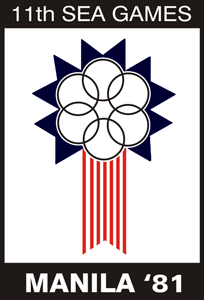 W
WThe 30th Chess Olympiad, organized by FIDE and comprising an open and a women's tournament, as well as several other events designed to promote the game of chess, took place between June 7 and June 25, 1992, at the Philippine International Convention Center in Manila, Philippines.
 W
WThe 1954 Asian Games, officially known as the Second Asian Games – Manila 1954 was a multi-sport event held in Manila, Philippines, from May 1 to 9, 1954. A total of 970 athletes from 19 Asian National Olympic Committees (NOCs) competed in 76 events from eight sports. The number of participating NOCs and athletes were larger than the previous Asian Games held in New Delhi in 1951. This edition of the games has a different twist where it did not implement a medal tally system to determine the overall champion but a pointing system. The pointing system is a complex system where each athlete were given points according to their achievement like position in athletics or in swimming. In the end the pointing system showed to be worthless as it simply ranked the nations the same way in the medal tally system. The pointing system was not implemented in future games ever since. Jorge B. Vargas was the head of the Philippine Amateur Athletic Federation and the Manila Asian Games Organizing Committee. With the second-place finish of the Philippines, only around 9,000 spectators attended the closing ceremony at the Rizal Memorial Stadium. The events were broadcast on radio live at DZRH and DZAQ-TV ABS-3 on delayed telecast.
 W
WThe 1981 Southeast Asian Games, officially known as the 11th Southeast Asian Games, was a multi-sport event held in Manila, Philippines from 6 to 15 December 1981. This was the first time that the Philippines hosted the Games since its first participation in 1977. Philippines is the sixth nation to host the Southeast Asian Games after Thailand, Burma, Malaysia, Singapore and Indonesia. The event was officially opened by President Ferdinand Marcos and the cauldron was lit by Benjamin Silva-Netto. The colourful opening ceremony was held in the Rizal Memorial Stadium in Manila. A new football stadium and indoor arena was built in Pasig named the University of Life Track & Field and Arena or the ULTRA, now called the PhilSports Complex. The adjacent apartments were used as the athlete's quarters and was converted into a BLISS housing project of First Lady Imelda Marcos. The final medal tally was led by Indonesia, followed by Thailand and host Philippines.
 W
WThe 1991 Southeast Asian Games, officially known as the 16th Southeast Asian Games, was a multi-sport event held in Manila, the Philippines from 24 November to 3 December 1991, with 28 sports featured in the games. This was the second time that the country hosted the games and its first since 1981. It was officially opened by President Corazon Aquino at the Rizal Memorial Stadium in Manila through a colorful opening ceremony. It was the only SEA Games at that time where the overall championship was heavily contested. The deciding medal came from the last sporting event - women's marathon where Indonesia got the gold medal.
 W
WThe 1992 ISF Men's World Championship was an international softball tournament. The tournament was held in Manila and Pasig, Philippines from 20 to 28 March 1992. It was the 8th time the World Championship took place. Eighteen nations competed, including defending champions United States.
 W
WThe Battle of Manila was a major battle of the Philippine campaign of 1944–45, during the Second World War. It was fought by forces from both the United States and the Philippines against Japanese troops in Manila, the capital city of the Philippines. The month-long battle, which resulted in the death of over 100,000 civilians and the complete devastation of the city, was the scene of the worst urban fighting in the Pacific theater. Japanese forces committed mass murder against Filipino civilians during the battle. Along with massive loss of life, the battle also destroyed architectural and cultural heritage dating back to the city's founding, and Manila became one of the most devastated capital cities during the entire war, alongside Berlin and Warsaw. The battle ended the almost three years of Japanese military occupation in the Philippines (1942–1945). The city's capture was marked as General Douglas MacArthur's key to victory in the campaign of reconquest. It is the last of the many battles fought within Manila's history.
 W
WWorld Youth Day 1995 was a Catholic youth festival that took place from January 10–15, 1995 in Manila, Philippines. It was the first time for an Asian country to host the event. Pope John Paul II presided over the event, marking his second trip to the country as Pope after his visit in 1981, and also the last papal visit in the country of the 20th century and 2nd millennium.